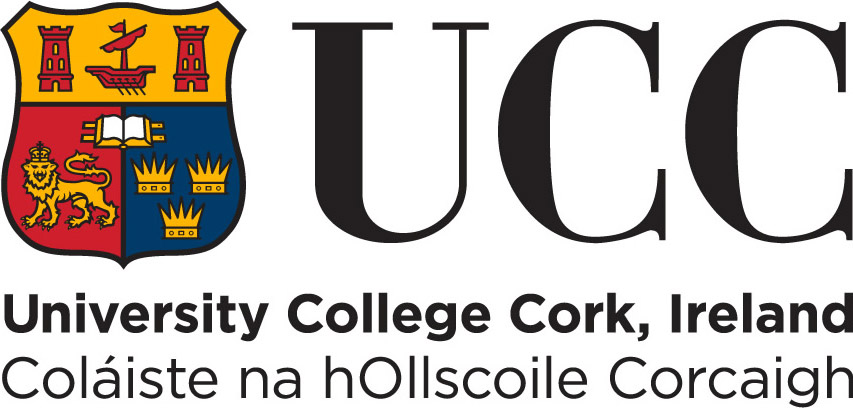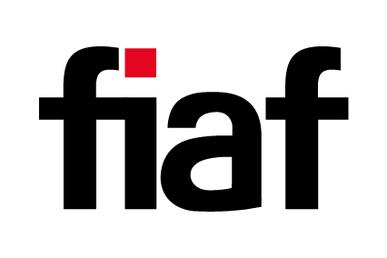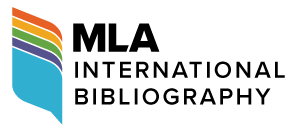51st International Antalya Golden Orange Film Festival
Antalya, Turkey, 10–18 October 2014
Murat Akser
The Antalya Golden Orange Film Festival was established in 1964. It is considered by many to be Turkey’s foremost film festival—a festive environment where film critics, directors, stars and spectators mingle in press conferences and parties, a spectacular event likened to Cannes Film Festival by those organising and attending it (Akser, “Antalya” 595). It is the oldest surviving film festival in Turkey, with a tradition of attendance by local cinephiles, spectacular parades of Turkish film stars and gala events for films that have won international acclaim at other festivals. With the notable exception of 1980–1981, when it was cancelled as a result of the military coup, the festival ran its course without interruption for fifty-one years. The festival has, however, been a contested arena of government and municipal cultural power politics (Akser, “Turkish Film Festivals” 147), and there has been regular controversy over the film selection, ongoing disputes over the winning titles, and international scandals such as the racist attack on Emir Kusturica in 2010 (“Serbian Director”). At the same time, it has proved a unique launch pad for domestic filmmakers whose films would otherwise struggle to find a space in the commercial exhibition circuit, and has historically presented a significant monetary prize to individual filmmakers to invest in their next film project. Film craftsmen, from editors to lab technicians, have also been awarded money prizes (albeit smaller ones), and many have received awards for their lifetime contribution to Turkish cinema as a mark of respect for the work of the film crew. The festival has traditionally presented domestic features, documentaries and short films in competition since its inception; later, an international competition was added, along with an onsite international film market.
In accordance with the multiple genres of films competing at the festival, the 2014 edition included 193 sessions over nine days, with twelve domestic features, ten foreign features, ten short films and fifteen documentaries. The new management of the festival comprised a three-person executive committee made up of Hülya Uçansu, former director of the International Istanbul Film Festival, Alin Taşçıyan, current president of SİYAD (Turkish Film Critics Association) and FIPRESCI (International Federation of Film Critics), and Zeynep Özbatur Atakan, producer of Winter Sleep (Kış Uykusu, Nuri Bilge Ceylan, 2014), Palme d’Or at the 67th Cannes Film Festival. Elif Dağdeviren, a publicist and a film producer, was the general manager. In line with the festival’s aim to provide opportunities for development and alternative distribution networks for emerging Turkish directors, the Antalya Film Forum was launched, inviting filmmakers to submit their film proposals at any stage of production. Those selected would be able to pitch their films to a panel of international producers that would open up opportunities for further funding. However, events unfolded that resulted in the forum not running as planned: the Antalya Golden Orange Film Festival became, in fact, the scene of protests due to censorship affecting a documentary critical of the government.
Censorship has been present for many years at Turkish film festivals. In 1980–1981, as mentioned, the Antalya Golden Orange Film Festival was cancelled by the management as a matter of principle, as the military government would not allow Turkish films with political content to be screened at the event. Thirty-three years later, in 2013, the municipality of Antalya, under the direction of the social-democratic Republican People’s Party (CHP), retrospectively granted the historical awards to the rightful winners after a special jury gathered to retroactively judge the films that were banned from attending. This year, a documentary criticising the Turkish prime minister was denied entry by the festival management, even though the preselection jury had approved its screening. The management issued press releases back-to-back in an attempt to contain the damage, but several jury members in the documentary competition resigned in protest. Alin Tasçıyan stepped down as president of the Turkish Film Critics Association due to allegations of censorship. The documentary competition was cancelled as filmmakers pulled their films from the festival (“Festival Judges”). The Pitching Forum and Work-in-Progress Forum were also affected by the withdrawal of qualifying projects; as a result, the few remaining projects, whose producers had links to the awarding jury, were awarded the monetary prize. The situation led to a de facto censorship of independent filmmakers.
The international competition programme included a selection of former festival winners: Venice-winner Court (Chaitanya Tamhane, 2014), Karlovy Vary–winner Monument To Michael Jackson (Darko Lungulov, 2014), Cannes-winners White God (Fehér isten, Kornél Mundruczó, 2014) and Force Majeure (Ruben Östlund, 2014), Kinovatr Film Festival–winner Test (Ispytanie, Alexandr Kott, 2014) and Berlinale-winner Macondo (Sudabeh Mortezai, 2014) all competed for the Golden Orange. Also featured in the international competition were independent films such as Insecure (Marienne Tardieu, 2014), Villa Touma (Suha Arraf, 2014), The Coffin in The Mountain (Binguan, Xin Yukun, 2014) and Life Feels Good (Chce się żyć, Maciej Pieprzyca, 2013). The international award went to White God and Court was awarded the SİYAD prize.
One section that has historically been regarded as successful is the national short film competition, which originated in the first edition of the festival. There was some controversy about the composition of the preselection jury for short films, which included some people who never made a short film. However, the jury’s final decision satisfied the critics. The winner was A Cup of Turkish Coffee (Bir Fincan Türk Kahvesi, Dağhan Celayir and Nazlı Eda Noyan, 2013), a blend of live action and animation made by two film school instructors. The film focuses on an elderly woman who sifts through old family photos with her grandchild. Through her eyes, the viewer witnesses events from her youth, how she was forced to marry at an early age, and how she survived discrimination in a patriarchal society. The film was awarded for its reflection on Turkey’s social past though the eyes of an individual.
Marijke De Valck and Mimi Soeteman refer to the selection of films for festivals as a process of power distribution and setting of priorities (296). From this perspective, the Antalya Golden Orange Film Festival has had its ups and downs, allowing as many local films as possible through the preselection gate, whilst tending to award prizes to those close to the festival management’s heart. The condition for films to be premieres in order to participate in the national competition was lifted in 2014. Until that year, the requirement was enforced at both the Antalya Golden Orange Film Festival and the Adana Golden Ball Festival, in the two neighbouring cities of Antalya and Adana. The compulsory choice between the two festivals induced more seasoned directors to select Adana, which takes place a week before Antalya and offers slightly higher monetary prizes, and made of Antalya a haven for first-time filmmakers. The change in regulations allowed Venice Film Festival–winner Sivas (Kaan Müjdeci, 2014) to compete. Experienced directors’ films like Let’s Sin (İtirazım Var, Onur Ünlü, 2014), Lamb (Kuzu, Kutluğ Ataman 2014), Fish (Balık, Derviş Zaim, 2014) and Rumbling Hearts (Guruldayan Kalpler, Ömer Uğur, 2014) found themselves competing against first- and second-time directors’ films like Çekmeköy Underground (Aysim Türkmen, 2014), Seaburners (Kumun Tadı, Melisa Önel, 2014), But Müzeyyen That’s the Deepest Desire (Fakat Müzeyyen Bu Derin Bir Tutku, Çiğdem Vitrinel, 2014), Song of My Mother (Klama Dayîka Min, Erol Mintaş, 2014) and A Good Fellow (İyi Biri, Ayhan Sonyürek, 2014). The competition also included controversial titles such as Why Can’t I Be Tarkovsky? (Neden Tarkovski Olamıyorum, Murat Düzgünoğlu, 2014), which was criticised for being self-consciously artsy (and confessing it in the film’s title), and OHA: In Search of Oflu Hodja (OHA: Oflu Hocayı Aramak, Levent Soyarslan, 2014) a mockumentary criticising the ruling Justice and Development Party’s (AKP) urban development projects to the point of insulting political sensitivities. Lamb, which was awarded best film at the festival, deals with a child’s fear of the circumcision ceremony in a small Anatolian village and is a powerful work that captures the harsh realities of everyday life in Turkey. Let’s Sin, a sympathetic portrayal of an eccentric former boxer imam trying to solve a murder mystery, went on to win best director and best screenplay. OHA: In Search of Oflu Hoca, a film dealing with the mythical stories of a man deemed to be an urban legend in the Black Sea region and fighting to prevent the construction of a dam, was also the recipient of several special prizes for its producer Zeynep Kesler.
The documentary competition section was supposed to be comprised of fifteen documentaries dealing with a range of ethnic, gender, environmental, political and social issues as well as documentaries valorising cinema as an art form. Among the selection was the heavyweight A Dream School at the Steppes (Tepecik Hayal Okulu, Güliz Sağlam, 2014), which deals with Ahmet Uluçay, a self-taught filmmaker who makes his films without support, thereby defining the ultimate independence in Turkish cinema (Akser, “Turkish Independent Cinema” 144); and Remake Remix Rip-Off (Motör, Cem Kaya, 2014), a documentary exploring the Turkish exploitation films that imitate Hollywood movies. But the film that caused the aforementioned stir in the documentary competition was Love Will Change the Earth (Yeryüzü Aşkın Yüzü Oluncaya Dek, Reyan Tuvi, 2014), about the Occupy Gezi movement that scared the Turkish government with its street ecoactivism in June 2013. The director was offered the opportunity to cut out the part that offended the management and remain in competition, but refused to do so (Genc). The elimination of films that are critical of the government from Turkish festivals has become a rather widespread issue, with similar episodes of censorship recently leading to the cancellation of documentary sections in both the Istanbul and Ankara International Film Festivals in 2015 (“22 Films”).
Another controversial aspect of the festival was accreditation. Accreditation has recently become a tool in the hands of the AKP in Turkey, where the reporting of news unfavourable to the government is blocked by preventing access to journalists who are critical of the government line (Akser and Baybars-Hawks, “Media and Democracy” 302). A similar approach was attempted in Antalya, but led to the eventual resignation of the press office team. Unable to give proper access to journalists until the last minute, the festival management missed an important publicity opportunity, especially in light of its recent establishment.
Menderes Türel, the new mayor of Antalya elected in 2014, set out plans to turn the festival area into a cultural centre that operates all year, and promised to make of Antalya a centre of filmmaking. Such a desire had been voiced as early as 1957 by filmmaker Behdül Dal, who later became one of the festival’s founders (Durmaz et al. 8). However, following this year’s controversial events, the Antalya Golden Orange Film Festival may have seriously undermined its international credibility and plans for future growth and development.
References
1. Akser, Murat, and Banu Baybars-Hawks. “Media and Democracy in Turkey: Toward a Model of Neoliberal Media Autocracy.” Middle East Journal of Culture and Communication 5.3 (2012): 302–21. Print.
2. Akser, Murat. “Antalya Golden Orange Film Festival: Between the National and the Global.” NECSUS. European Journal of Media Studies 2.2 (2013): 593–8. Web. 21 June 2015. <http://dx.doi.org/10.5117/NECSUS2013.2.AKSE>.
3. ---. “Turkish Film Festivals: Political Populism, Rival Programming and Imploding Activities.” Film Festival Yearbook 6: Film Festivals and Middle East. Eds. Dina Iordonova and Stefanie Van de Peer. St. Andrews: St. Andrews Film Studies Publishing, 2014. 141–56. Print.
4. ---. “Turkish Independent Cinema: Between Bourgeois Auterism and Political Radicalism.” Independent Filmmaking Around the Globe. Eds. Doris Baltruschat and Mary P. Erickson. Toronto: U of Toronto P, 2015. 131–48. Print.
5. But Müzeyyen That’s the Deepest Desire [Fakat Müzeyyen Bu Derin Bir Tutku]. Dir. Çiğdem Vitrinel. Mars Prodüksiyon, 2014. Film.
6. Court. Dir. Chaitanya Tamhane. ZOO Entertainment, 2014. Film.
7. Çekmeköy Underground. Dir. Aysim Türkmen. Metropol Film, 2014. Film.
8. Çelik, Abdurrahman. Sinemada Bir Asir [A Century in Cinema]. Ankara: Turkiye Kitabevi, 2015. Print.
9. The Coffin in the Mountain [Binguan]. Dir. Xin Yukun. 1984 Studio, 2014. Film.
10. A Cup of Turkish Coffee [Bir Fincan Türk Kahvesi]. Dir. Dağhan Celayir and Nazlı Eda Noyan. Atlantik Film, 2013. Film.
11. De Valck, Marijke, and Mimi Soeteman. “‘And the Winner Is…’ What Happens Behind the Scenes of Film Festival Competitions.” International Journal of Cultural Studies 13.3 (2010): 290–307. Print.
12. A Dream School at the Steppes [Tepecik Hayal Okulu] Dir. Güliz Sağlam. A. Ilker Berke Yapim, 2014. Film.
13. Durmaz, Bahar, Tan Yigitcanlar, and Koray Velibeyoglu. “Creative Cities and the Film Industry: Antalya’s Transition to a Eurasian Film Centre.” The Open Urban Studies Journal 1 (2008): 1–10. Print.
14. “Festival Judges, SİYAD Protest Gezi Film’s Removal from Altın Portakal.” Today’s Zaman. 2 Oct. 2014. Web. 22 Apr. 2015. <http://www.todayszaman.com/arts-culture_festival-judges-siyad-protest-gezi-films-removal-from-altin-portakal_360553.html>.
15. Fish [Balık]. Dir. Derviş Zaim. Marathon Film, 2014. Film.
16. Force Majeure. Dir. Ruben Östlund. Platform Produktion, 2014. Film.
17. Genc, Kaya. “Forbidden Fruit: Censorship at Antalya Golden Orange 2014.” Sight & Sound. 21 Oct. 2014. Web. 27 June 2015. <http://www.bfi.org.uk/news-opinion/sight-sound-magazine/comment/festivals/forbidden-fruit-censorship-antalya-golden-orange>.
18. A Good Fellow [İyi Biri]. Dir. Ayhan Sonyürek. Anatolian Yapimcilik, 2014. Film.
19. Insecure. Dir. Marienne Tardieu. La Vie Belle Films, 2014. Film.
20. Lamb [Kuzu]. Dir. Kutluğ Ataman. Detailfilm, 2014. Film.
21. Let’s Sin [İtirazım Var]. Dir. Onur Ünlü. U10 Film, 2014. Film.
22. Life Feels Good [Chce się żyć]. Dir. Maciej Pieprzyca. Tramway Film Studio, 2013. Film.
23. Love Will Change the Earth [Yeryüzü Aşkın Yüzü Oluncaya Dek]. Dir. Reyan Tuvi. Reyan Tuvi, 2014. Film.
24. Macondo. Dir. Sudabeh Mortezai. FreibeuterFilm, 2014. Film.
25. Monument to Michael Jackson. Dir. Darko Lungulov. This and That, Papa Films, 2014. Film.
26. OHA: In Search of Oflu Hodja [OHA: Oflu Hoca’yı Aramak]. Dir. Levent Soyarslan. Baltaoğlu, 2014. Film.
27. Remake Remix Rip-Off [Motör]. Dir. Cem Kaya. UFH Fiction Gbmh, 2014. Film.
28. Rumbling Hearts [Guruldayan Kalpler]. Dir. Ömer Uğur. Barakuda Film, 2014. Film.
29. Seaburners [Kumun Tadı]. Dir. Melisa Önel. Bulut Film, 2014. Film.
30. “Serbian Director Emir Kusturica Withdraws from Turkish Film Fest.” Hürriyet Daily News. 10 Oct. 2010. Web. 22 Apr. 2015. <http://www.hurriyetdailynews.com/default.aspx?pageid=438&n=serbian-director-emir-kusturica-withdraws-from-turkish-film-2010-10-10>.
31. Sivas. Dir. Kaan Müjdeci. M3, 2014. Film.
32. Song of My Mother [Klama Dayîka Min]. Dir. Erol Mintaş. M3, 2014. Film.
33. Test [Ispytanie]. Dir. Alexandr Kott. Igor Tolstunov Production Company, 2014. Film.
34. “22 Films Withdrawn from İstanbul Festival in Censorship Outcry.” Today’s Zaman. 13 Apr. 2015. Web. 22 Apr. 2015. <http://www.todayszaman.com/anasayfa_22-films-withdrawn-from-istanbul-festival-in-censorship-outcry_377853.html>.
35. Villa Touma. Dir. Suha Arraf. Basilasan, 2014. Film.
36. Winter Sleep [Kış Uykusu]. Dir. Nuri Bilge Ceylan. NBC Film & Zeyno Film, 2014. Film.
37. White God [Fehér isten]. Dir. Kornél Mundruczó. Proton Cinema, 2014. Film.
38. Why Can’t I Be Tarkovsky? [Neden Tarkovski Olamıyorum?]. Dir. Murat Düzgünoğlu. Kuzgun Film, 2014. Film.
Suggested Citation
Akser, M. (2015) 51st International Antalya Golden Orange Film Festival, Antalya, Turkey, 10-18 October, 2014. Alphaville: Journal of Film and Screen Media, 9, pp. 144–150. https://doi.org/10.33178/alpha.9.13.
Murat Akser is Lecturer in Cinematic Arts at the School of Creative Arts, Ulster University. He has been the founding director of the Film and Television MA at Kadir Has University Istanbul, Turkey. He received his MA in Film and PhD in Communication and Culture from York University, Toronto, Canada. He has been the editor of the film studies journal CINEJ. Akser has published articles on film parody, political film and Turkish film festivals. He has coedited New Cinema, New Media (Cambridge Scholars Press) and has authored a book-length study of Turkish cinema, Green Pine Resurrected: Film Genre, Parody and Intertextuality in Turkish Cinema (Lambert).









